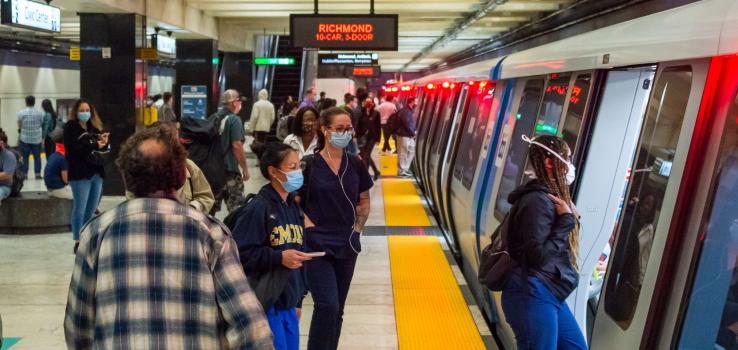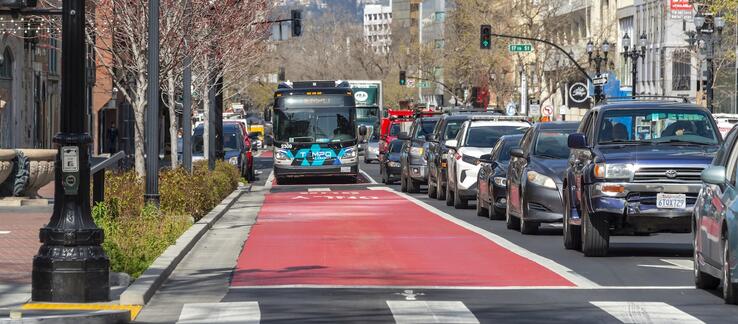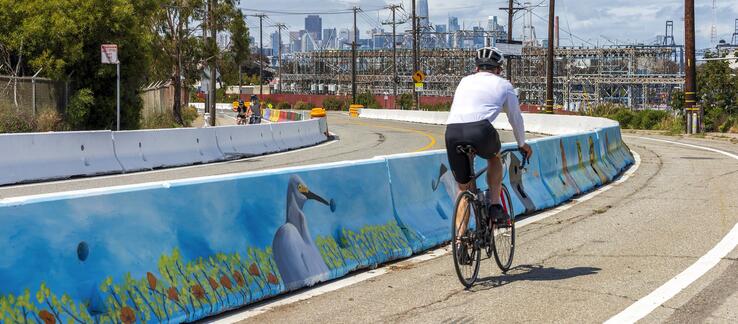
Transportation
We believe: Walking, biking, and taking transit should be the safest
and best ways to get around for people of all ages and abilities.
and best ways to get around for people of all ages and abilities.

• Reduce emissions from transportation.
• Reduce driving.
• Build complete communities around transit.
• Make Bay Area transit work for the 21st century.
• Eliminate traffic deaths.





